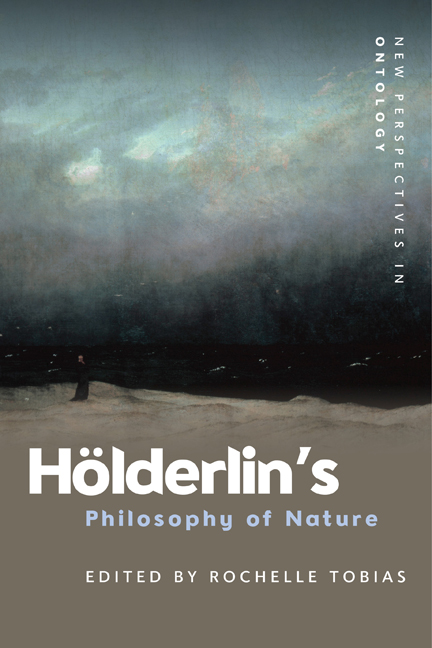3 - Raging with Care: The Poet's Liquid Fire
Published online by Cambridge University Press: 08 October 2020
Summary
This essay considers Hölderlin's transformative engagement with the cosmology or natural philosophy of the Presocratic thinker Empedocles in his tragic play Empedocles. Tracing a round dance between the natural elements (in particular the motifs of liquid and fire), the poetic tones (specifically the convergence of rage and care, and their relation to strife and love) and two models for the poet (Achilles and Empedocles), it explores the possibly queer logic of ‘harmonious opposition’ in Hölderlin's poetics and philosophy of nature.
The ancient Empedocles wrote philosophical poetry, of which only fragments are preserved. He was the first to suggest that there are four elements that combine to form the cosmos. Besides these, he recognises two forces as agents of cosmic change – love (the power of attraction) and strife (the force of repulsion). So goes the usual summary, at least, which takes the Empedoclean elements for independent and changeless essences. However, the textual evidence looks quite different and presents a much less mechanistic picture. Hölderlin was alive to the vibrancy of the Empedoclean cosmos and plays it up in his tragedy Empedocles and other writings engaging the poet-philosopher.
Fragment B6 provides the most explicit evidence of four primary elements in Empedoclean cosmology:
The four roots of all things hear first:
Shining Zeus, life-giving Hera, Aidoneus,
and Nestis, who by her tears moistens the mortal spring.
While the number four appears here, Empedocles does not actually speak of elements, but of roots (rhízōmata). This suggests a more dynamic, organic and self-actuating process than the Aristotelian language of ‘elements’. Aristotle's profound influence on the history of philosophy at times distorts our understanding of the Presocratics. By way of his disciple Theophrastus, Aristotle's interpretation of Empedocles as the philosopher of earth, water, air and fire has become the dominant one, even though Aristotle, who finds in Empedocles the historical prefiguration of his own conception of the material principles of bodies, to a certain extent projects his own philosophy onto Empedocles.
Granted, Empedocles does at times paint a rather mechanical picture of the various unions of the different ‘roots’ that produce the world or cosmos – or what Hölderlin calls ‘nature’.
- Type
- Chapter
- Information
- Hölderlin's Philosophy of Nature , pp. 44 - 57Publisher: Edinburgh University PressPrint publication year: 2020



